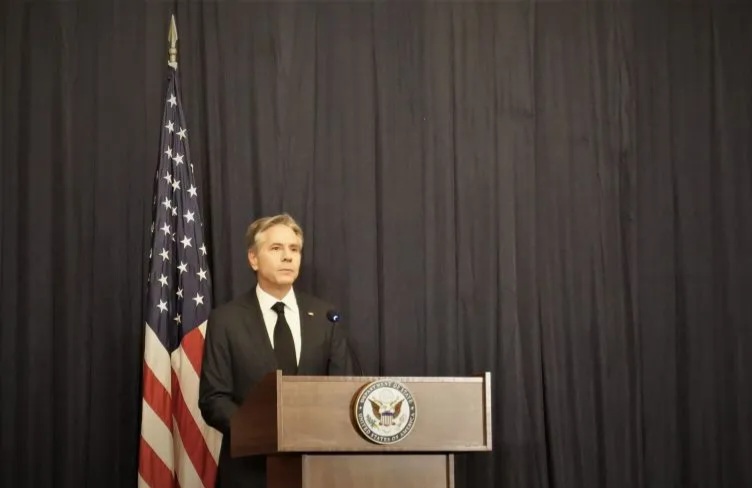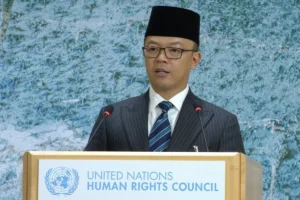US committed to non-proliferation regime: Blinken

Jakarta, The Gulf Observer: US Secretary of State Anthony Blinken affirmed that Washington is committed to “the rules-based non-proliferation regime” in response to the ASEAN’s efforts in creating a nuclear-weapon-free zone.
“We truly appreciate ASEAN leadership in this issue,” Blinken stated at a press conference in Jakarta on Friday (July 14) in connection with the possibility of the US signing the protocol to the Southeast Asia Nuclear Weapon-Free Zone (SEANWFZ) Treaty.
“And we look forward to continuing and even intensifying talks with ASEAN,” he remarked.
On Tuesday (July 11), Indonesia chaired the SEANWFZ Commission Meeting to discuss efforts in advancing the treaty’s protocol signing on the occasion of the 56th ASEAN Foreign Affairs Ministers’ Meeting (AMM).
The SEANWFZ Treaty, which is also known as the Treaty of Bangkok, was signed by 10 member states of the ASEAN in 1995.
The treaty obligates its signatory states not to “develop, manufacture or otherwise acquire, possess or have control over nuclear weapons, station or transport nuclear weapons, or test or use nuclear weapons.”
The signatory states also formulated a protocol to the treaty in a bid to invite five nuclear powers — China, Russia, France, the United Kingdom, and the United States — to join the efforts to realize Southeast Asia as a region free of nuclear weapons.
“However, 28 years after the signing of the treaty, none of the nuclear weapon states have signed it (the protocol),” Indonesian Foreign Affairs Minister (FM) Retno Marsudi remarked at the start of the SEANWFZ Commission Meeting.
China has expressed its readiness to sign the protocol despite no concrete actions seen so far.
Meanwhile, Russian FM Sergey Lavrov stated on Thursday (July 13) that Moscow is willing to sign the protocol on grounds that all parties must commit to not developing and stationing any nuclear weapon.
Earlier, Minister Marsudi revealed that the ASEAN will review the points of the treaty’s protocol in order to pave an easier way for the nuclear powers to sign and ratify it.
“We will continue communicating with each other … delegating our negotiators to review (the points of the protocol), as we see there are several points that cannot be agreed upon yet,” Marsudi noted on Tuesday.


